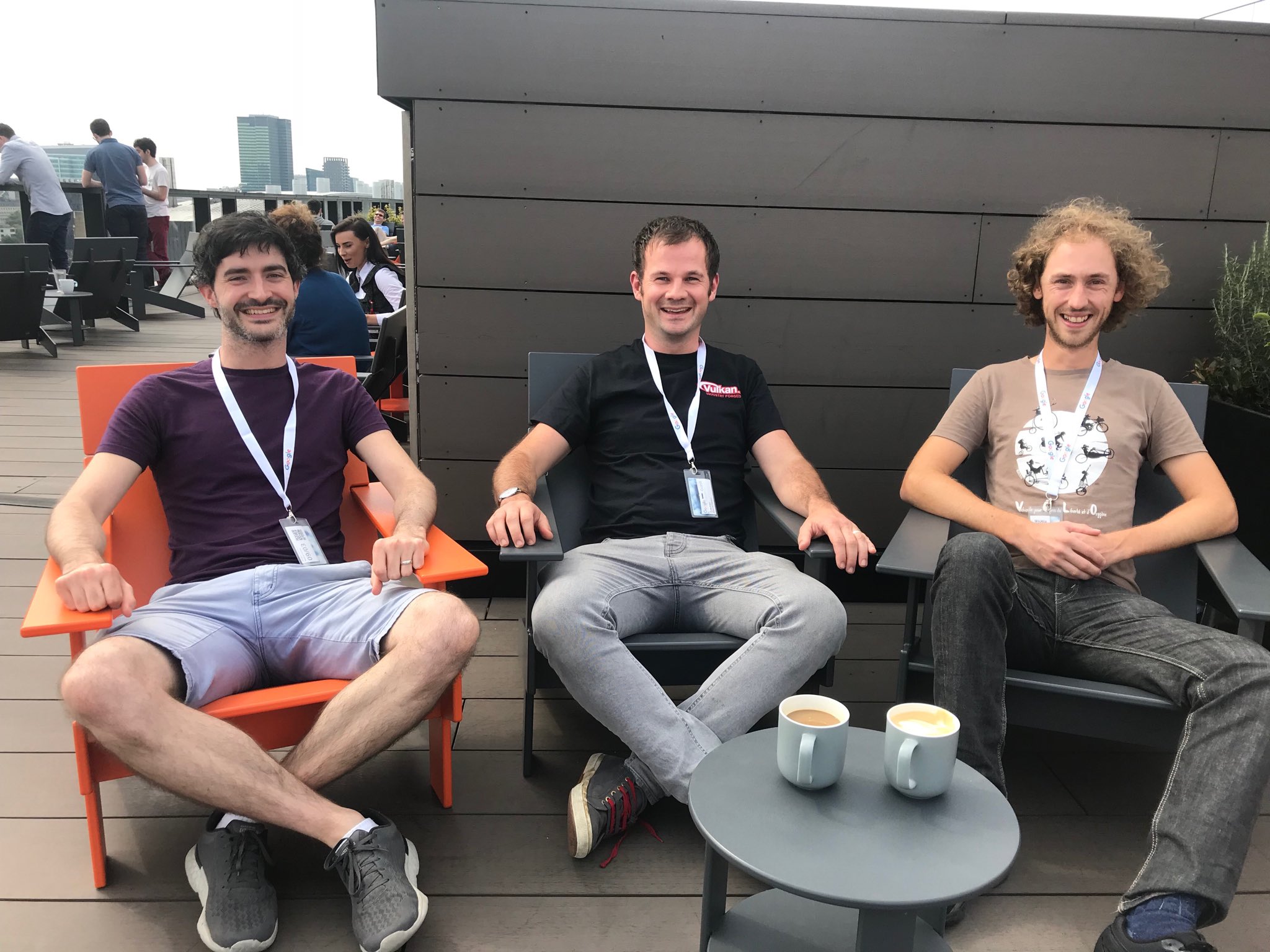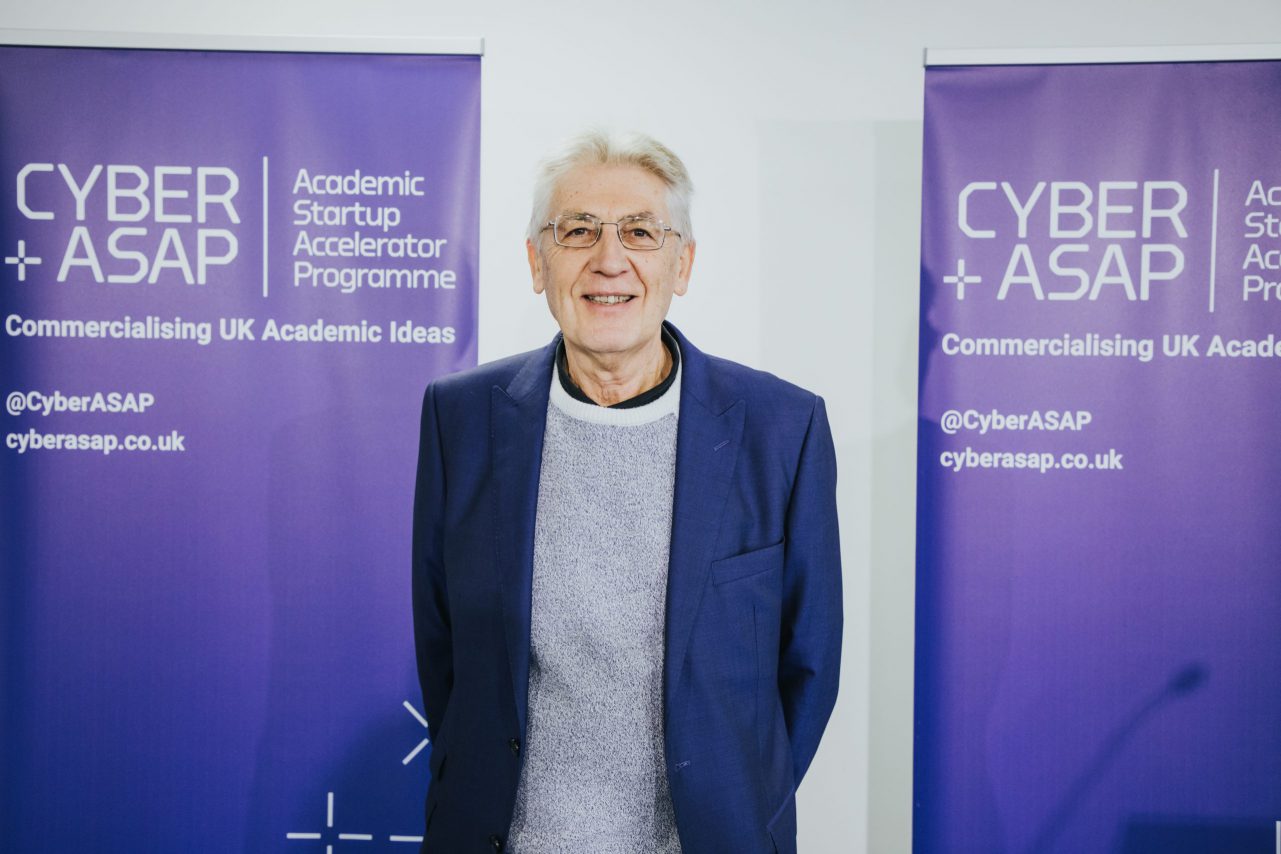CyberASAP Alumni Insights: Why novelty isn’t the most important thing on the road to commercialisation

We catch up with the GraphicsFuzz Co-Founder to discuss commercialisation, acquisition and academia in Cyber Security
Welcome to the first in a series of catch-ups with our distinguished CyberASAP alumni to discuss their road to Cyber Security commercialisation from academia. Join us every week as we discuss key lessons and insights from our alumni since graduating from the programme.
This week, we speak to Ally Donaldson, the Co-Founder of GraphicsFuzz. Ally, and his colleagues at Imperial College London, developed a solution for security and reliability testing for graphics processors.
Since graduating, their solution has subsequently been acquired by Google. We discuss the programme, life after GraphicsFuzz and returning to academia after commercial successes.
What were your key motivations for commercialising your research?
Curiosity! We were interested in testing out whether and what commercial value our research might have; how useful it might be. The project wasn’t a hugely original idea…..but we had adapted and applied our research to a new domain, tried it out in graphics devices and wanted to test and demonstrate its usefulness in security.
We didn’t have a plan to set up a company and leave academia; we had thought we might go down the licensing route but were open-minded. Our expectations were for either no success or limited sales, with organic growth. We certainly weren’t looking to go down the route of getting investors and leaving academia.
What challenges did you think you might face?
IP. We knew we wouldn’t be able to buy the IP and worried that this might be a barrier… A greater understanding – both ours and the university’s – about how to do software licences would have been useful.
Current Status of the project?
GraphicsFuzz was acquired by Google in 2018. The Proof of Concept developed on CyberASAP was the core product GraphicsFuzz was promoting at this time. The GraphicsFuzz team from Imperial all joined Google, and I retained a part-time faculty position at Imperial. I recently left Google to resume my full-time post at Imperial College.
What impact did CyberASAP have on your commercialisation plans?
We joined CyberASAP as a follow-on from iCURE, without which nothing would have happened. It allowed us to have a funded break from research to go on the road and talk to industry. Those conversations were invaluable.
Joining CyberASAP gave us the funding and the time to develop a Proof of Concept – crucial to progressing any commercialisation ambitions.
The programme also provided some really useful tools, skills and experience: a framework for creating customisable decks, for example – again, essential when talking to industry. And it allowed us to learn new skills like writing a business plan, developing and practising pitching experience; picking up new vocabulary so that we were better able to “talk the talk”.
All of these elements of the programme helped equip us to better handle the conversations with industry. So, for example, when we got into conversations about sales and company valuation, the fact that we already had plans and numbers in place gave us more confidence in the negotiations.
What advice would you give fellow academics considering commercialising their research?
- Don’t be afraid to let your research slip for a year or so if you want to focus on translating research into something.
- Don’t be overly focussed on how novel the idea is that you’re commercialising.
- Be brave when you’re thinking about marketing. Developing a social media campaign that sheds your product in a positive light requires a completely different mindset from that of a rigorous scientific researcher, but developing such a campaign is essential in order to get attention.
- Don’t just think about securing large investments, spinning out/scaling up…..consider the possibility of running a long-term, small, successful business with slower, organic growth.
What are the key lessons you’ve learned from the process of commercialisation?
Academics like doing something different so the commercialisation journey was a great new experience.
Think about your priorities: there’s more freedom to innovate in academia – where you can work on an interesting, hard problem for a long time – than in the commercial world, where your activities need to be business focused and therefore may need to change rapidly to follow the needs of the business.
KTN Perspectives
“I love that Ally says it was initially curiosity that led to the creation of GraphicsFuzz – that’s exactly why CyberASAP exists: to help build on the fantastic research, often driven by curiosity, that already takes place in UK Universities, and allow the academics time to explore whether there is potential to take it further into the commercial domain.
Sometimes it’s not all about having a groundbreakingly original idea – a different approach or maybe just some space to step back and take stock is what’s needed. And that’s what the framework of CyberASAP helps provide.
The acquisition of GraphicsFuzz by Google was a welcome validation of the approach the team had been taking – not only did Google obtain the skills, knowledge and experience of the founders but the benefits of the project continued to be available under open source licence.”
Robin Kennedy, Co-Director – CyberASAP
“A key lesson taken from GraphicsFuzz is that if you are wanting to commercialise your academic research the route to commercialisation is not a one way ticket.
CyberASAP gave Ally and the team an opportunity to translate their academic research into a tangible commercial product and in the process developed new technical and commercial skills.
Moving back into academia, from Google’s commercial research environment, Ally brings fresh ideas and new perspectives to his research and the university.”
Emma Fadlon, Co-Director – CyberASAP
This was the first in our Alumni Insights series, where we discuss key lessons and insights on the cyber security road from academia to commercialisation, check back next week for the next edition.
About us
CyberASAP (Cyber Security Academic Startup Accelerator Programme) is the only pre-seed accelerator programme in the cyber security ecosystem which provides expertise, knowledge and support to convert academic ideas into commercial products.
CyberASAP is funded by the UK Government Department for Digital, Culture Media & Sport (DCMS) and delivered in partnership by Innovate UK and KTN.
Get involved in CyberASAP
Whether you’re an Academic or University Technology Transfer Officer, Industrialist, investor, or have an interest in being involved or supporting the CyberASAP programme in any way – get in touch below.


